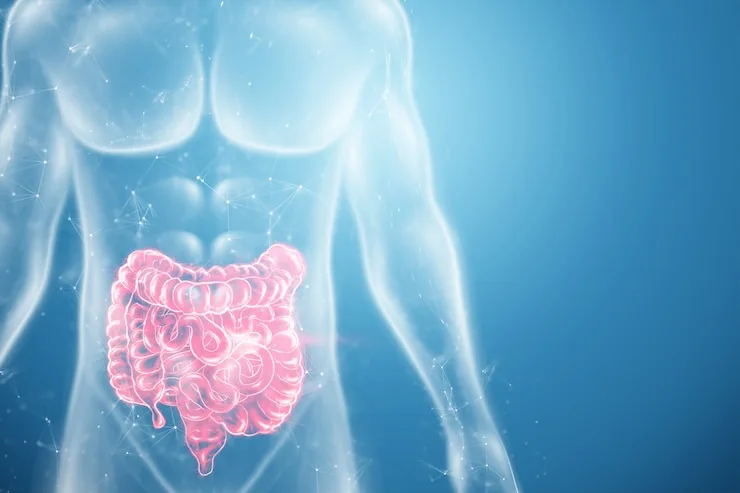Gut health has been gaining significant attention in recent years, with scientific studies continuously uncovering the profound influence the gut has on our overall well-being. Traditionally, when we think of the gut, it’s often in the context of digestion and stomach issues, but emerging research highlights how our gut microbiome the vast ecosystem of bacteria, fungi, viruses, and other microorganisms that reside in the digestive system affects much more than just digestion. Gut health plays a critical role in various aspects of our health, from immune function to mental health, skin appearance, and even our ability to manage weight. In this blog, we will explore the far-reaching impact of gut health on overall wellness and why taking care of your gut is essential for maintaining a healthy nutrition diet and balanced life.
What is Gut Health?
Gut health refers to the overall health and function of the gastrointestinal (GI) tract, particularly the stomach and intestines. It plays a critical role in digestion, absorption of nutrients, immune system function, and even mental health. A healthy gut is balanced, with a diverse community of beneficial microorganisms (the gut microbiota) that help maintain proper digestion and protect against harmful pathogens.
1. Understanding the Gut Microbiome
The human gut is home to trillions of microorganisms that work together in a delicate balance. The gut microbiome is primarily composed of bacteria, but it also includes fungi, archaea, and viruses. These microorganisms play various roles in maintaining bodily functions, such as digesting food, synthesizing vitamins, regulating immune responses, and even influencing mood and behavior.
When the gut microbiome is balanced, the body functions optimally. However, an imbalance in gut bacteria, known as dysbiosis, can lead to a range of health problems, from digestive issues to chronic diseases. The delicate ecosystem of the gut is influenced by several factors, including diet, lifestyle, stress, and medications, particularly antibiotics.
2. Gut Health and Digestion
One of the most obvious ways gut health impacts overall wellness is through digestion. A healthy gut microbiome helps break down food efficiently, ensuring that nutrients are absorbed and waste is expelled properly. When gut bacteria are out of balance, it can lead to common digestive issues like bloating, gas, constipation, diarrhea, acid reflux, and irritable bowel syndrome (IBS).
Additionally, the gut microbiome is involved in the production of short-chain fatty acids (SCFAs) through the fermentation of fiber. SCFAs are essential for maintaining gut lining integrity and have anti-inflammatory properties. They also provide energy to cells in the colon and are linked to improved metabolic health and reduced risks of chronic conditions like obesity, heart disease, and type 2 diabetes.
3. Gut Health and the Immune System
The gut microbiome is closely connected to the immune system, with around 70-80% of the body’s immune cells residing in the gut. The gut acts as the body’s first line of defense against harmful pathogens by helping to regulate the immune response. A healthy balance of gut bacteria supports the production of immune cells that fight infections, while dysbiosis can compromise the immune system, making the body more susceptible to autoimmune diseases, allergies, and infections.
For instance, certain beneficial bacteria in the gut help train the immune system to recognize harmful pathogens while tolerating harmless substances. Disruptions in this process can lead to the development of conditions like asthma, food allergies, and autoimmune diseases, where the body mistakenly attacks its tissues.
4. Gut Health and Mental Health: The Gut-Brain Connection
In recent years, research has uncovered a fascinating link between the gut and the brain, known as the gut-brain axis. The gut microbiome communicates with the brain through the vagus nerve, hormones, and immune signaling. This connection suggests that the health of our gut can influence mood, behavior, and even mental health conditions like anxiety, depression, and stress.
Certain gut bacteria produce neurotransmitters like serotonin and gamma-aminobutyric acid (GABA), which regulate mood and behavior. Around 90% of serotonin, a key neurotransmitter responsible for feelings of well-being and happiness, is produced in the gut. An imbalance in the gut microbiome can alter the production of these neurotransmitters, potentially contributing to mood disorders.
Studies have shown that individuals with conditions like irritable bowel syndrome (IBS) or inflammatory bowel disease (IBD) often also experience mental health challenges, including depression and anxiety. Conversely, improving gut health through diet, probiotics, or other therapies has shown promise in alleviating some of these mental health symptoms.
5. Gut Health and Skin Health
Another area of growing interest is the gut-skin connection. The health of the gut can influence the appearance and condition of the skin, a concept often referred to as the gut-skin axis. An unhealthy gut may contribute to conditions like acne, eczema, psoriasis, and rosacea.
When the gut microbiome is out of balance, it can lead to inflammation and the overgrowth of harmful bacteria. This inflammation can trigger skin flare-ups and exacerbate conditions like acne. On the other hand, a healthy gut that promotes balanced inflammation and optimal nutrient absorption can result in clearer, healthier skin.
Probiotics and gut-friendly foods rich in fiber, antioxidants, and healthy fats can support the gut and improve skin health. For example, omega-3 fatty acids found in fish, nuts, and seeds are known to have anti-inflammatory properties that can reduce skin inflammation and promote healing.
6. Gut Health and Weight Management
The gut microbiome plays a significant role in metabolism and weight regulation. Research has shown that the composition of gut bacteria can influence how the body absorbs and processes nutrients, and how efficiently it stores fat. Certain gut bacteria are associated with leaner body types, while others may promote weight gain by increasing the efficiency of calorie absorption.
Furthermore, the gut microbiome influences the regulation of appetite and satiety through the production of hormones that signal hunger or fullness. Dysbiosis can disrupt these processes, potentially contributing to overeating, cravings, and weight gain.
Recent studies have explored the use of probiotics and dietary interventions to help balance the gut microbiome and support healthy weight management. For example, diets high in fiber, fermented foods, and polyphenols (found in fruits, vegetables, and tea) can support the growth of beneficial gut bacteria and improve metabolism.
7. Tips for Maintaining a Healthy Gut
Given the profound impact that gut health has on overall wellness, it’s crucial to adopt habits that support the gut microbiome. Here are a few strategies to maintain a healthy gut:
- Eat a diverse, fiber-rich diet: A varied diet with plenty of fruits, vegetables, whole grains, legumes, and nuts provides the fiber needed for gut bacteria to thrive.
- Include fermented foods: Fermented foods like yogurt, kefir, kimchi, sauerkraut, and miso contain probiotics that can help replenish beneficial bacteria in the gut.
- Avoid excessive use of antibiotics: While antibiotics are necessary for treating infections, overuse can disrupt the balance of gut bacteria. Always take antibiotics as prescribed and avoid using them unnecessarily.
- Manage stress: Chronic stress can negatively affect gut health by disrupting the balance of gut bacteria. Stress-reduction techniques like yoga, meditation, or deep breathing exercises can benefit mental and gut health.
- Exercise regularly: Regular physical activity has been shown to promote the growth of beneficial gut bacteria and improve overall gut health.
- Get enough sleep: Sleep is essential for both gut and mental health. Aim for 7-9 hours of quality sleep each night to support a balanced gut microbiome.
Final Thoughts
Gut health is more than just a matter of digestion it is central to maintaining overall wellness. From immune function to mental health, skin appearance, and weight management, the gut microbiome plays a crucial role in nearly every aspect of our health. By adopting a gut-friendly diet and lifestyle, we can support this vital system and enhance our well-being.
As science continues to uncover the intricate connections between the gut and the rest of the body, it is becoming clear that maintaining a healthy gut is one of the most effective ways to promote long-term health. Whether you’re looking to boost your immunity, improve your mood, achieve clear skin, or manage your weight, focusing on gut health is a powerful step toward achieving your wellness goals.






